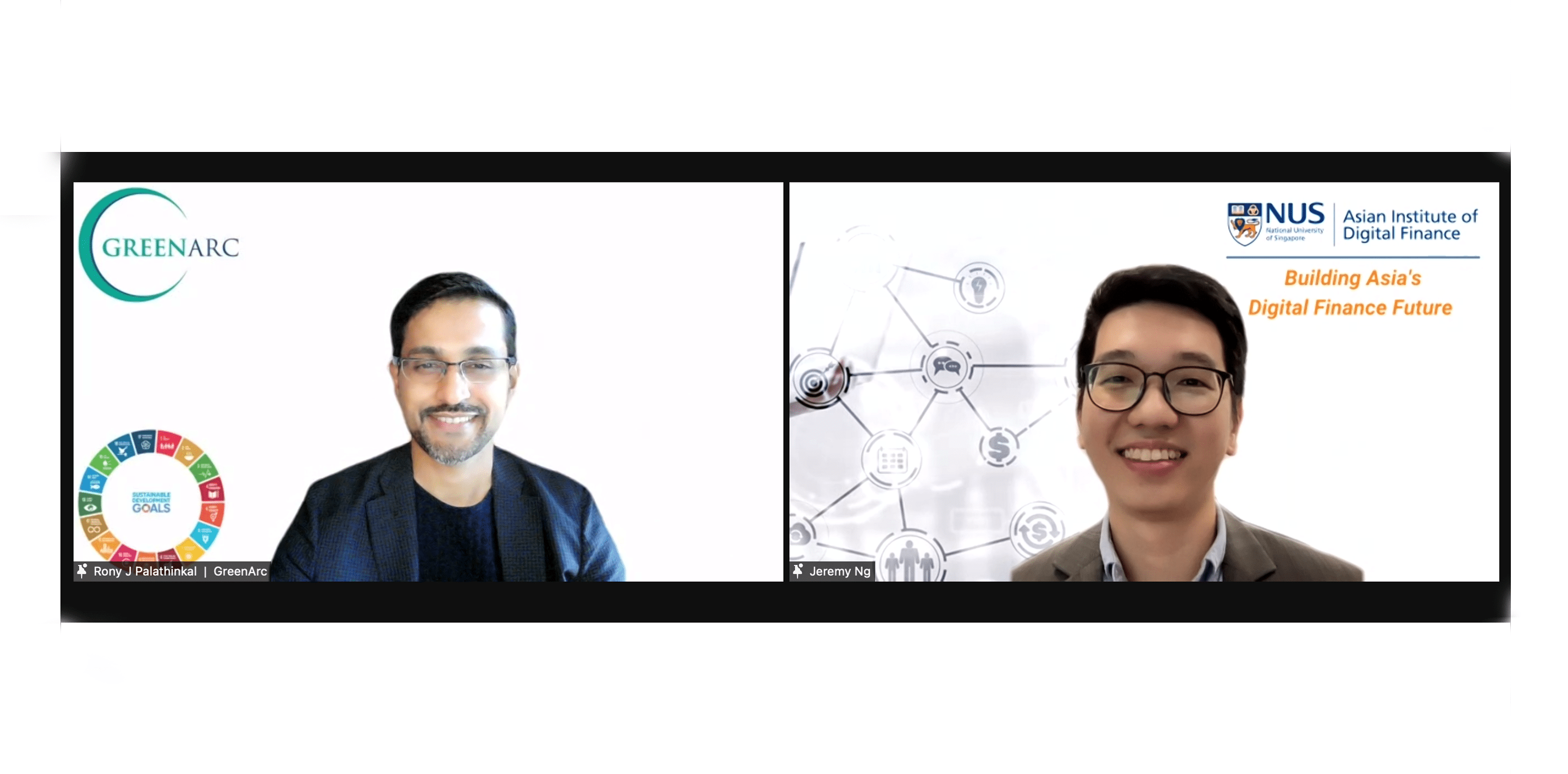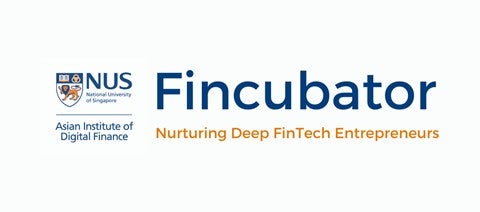SUMMARY OF CONVERSATION with RONY J Palathinkal
Fincubator had the pleasure of playing host to Rony J Palathinkal, COO of GreenArc Capital. He shared candidly about his experience moving from 17 years of corporate working experience to working on a startup. We also tapped on his wealth of experience working in Innovation and Ventures at Credit Suisse to help our founders better understand the Proof of Concept (POC) contract in B2B sales process. Finally, we touched on the scope of Green FinTech.

Jump from Corporate to Startup
‘It is one thing staring in the space from afar, and another getting into the thick of things.’ It (Going into entrepreneurship) is not as glamorous as one thinks. Nevertheless, despite it not often talked about, there are in fact many people who moved from a large corporation into startups. This is because there are valuable experiences and sharpening of skills whilst working in corporate. There are fungible skills, such as dealing with clients and managing a team that are invaluable in a startup world.
Rony mentioned that it is important to bring with you everyone that walks alongside your startup journey, directly and indirectly. He especially thanks his wife for being there with him. He mentioned that whilst people on the outside get to see the best of the startup, it is the people around you that not only experience your ups, but also your downs. So, it is important to give thanks to them, and move forward together.
Rony mentioned that whilst working in corporate, there tends to be a known process on how things will run, people who will do it, and a fix budget for your work. In a startup, there is none of that. For example, his co-founder said to him; if he wants to get paid, he will have to set up the payroll. So going to a startup up means going back to fundamentals. Nevertheless, despite the challenges of operating in an unfamiliar environment, there’s tons of flexibility to try to do something new and challenge yourself that you can do it. For self-starters, this will prove to be very meaningful.
Being Relevant to Corporates

Rony worked at the Ventures and innovation Team whilst at Credit Suisse. He shared that his work revolves around finding relevant solutions for various divisions for the bank. There, he was exposed to fresh solutions and pitches. We tapped on his experience there to see if we can garner insights for startup founders. He mentioned two things: Getting solutions plugged into a corporate’s business and pitching to a corporate’s problem.
To get plugged in properly, it helps to understand the corporate that you hope to work with. For example, learning about corporate’s budget constraints and their buying cycle helps. Also, understand that it is important to scope out specifically who in a large corporation will find the product useful, and reach out to the relevant ones.
The second insight is that startups often present the same generic pitch to all corporates. That is not the ideal way to pitch. Startups need to tailor to pitch specifically for each corporate they meet. It is better to understand who you want to sell to, think about how the company thinks about the problem they have, and pitch it with their perspective in mind. The key is to achieve resonance. Pitching in a way that resonates also has an added benefit that when your sales deck is circulated within the corporation, it is easier for everyone on the corporate team to understand your product.
Understanding Proof of Concept Contract

The POC contract is the first signed official contract that documents the terms and details of engagement between a startup and a corporation. Elaborating on relevance to corporates, to successfully close the POC contract, Rony suggests entrepreneurs to identify a key decision maker or person in the corporate that champions your solution. Thereafter, build rapport with the person. That helps to give you honest insights on the engagement that allow you to realistically evaluate and plan out the engagement. There is always going to be a person-to-person relationship building needed, so focus on nurturing that relationship is important.
Of course, throughout the engagement with the corporate, it is helpful to be open and share candidly. Trust is especially important in a long-term business to business relationship, and that needs to be nurtured overtime. Overpromising on delivering a solution is a common thing that Rony observed that kills trust.
Nevertheless, Rony agrees that all POC contracts will take time. It is exceedingly rare for things to move fast. What startups can control is to therefore turn things quickly on their part. For example, startups can respond faster when there is a requirement for documentation or an answer. Another thing startups should do is to try to understand a corporate’s process. All firms have a due process, such as vendor onboarding, servicing process, and billing process. Knowing the process allows founders to better manage their stakeholders, and be more realistic in the timeline of when a contract will come in.
When a startup eventually gets a POC, the question was then posed to Rony; will a POC eventually lead to a longer-term relationship with the corporate? The answer is that it depends. Rony mentioned that the POC is for the corporate to realize two things; firstly, is the startup able to deliver on the scope of the project and secondly, if the solution truly fits the company’s need. Whilst the latter is something the startup cannot control, startups must know that no corporate will go through the POC process to eventually not consider the solution for a long term, for that will be a waste of time, money, and effort. Most of the time, he observed that the solution is not a true perfect fit to the corporate’s problem, and some customization is required. They may be a need to add or remove features before a longer-term relationship can be formalized.
What is green Fintech
The fourth segment of the conversation was about what Green Fintech is. Rony states that green Fintech as a terminology only looks at environmental issues. He expands it by defining it as sustainable Fintech. This is a segment which Fintech firms that cater to environmental and social sectors of finance operates in.
For individuals interested in building relevant skillsets for the industry, it is helpful to narrow down into the various sub sectors of finance that you are interested in. Sustainable Fintech will have elements of them. From a technology standpoint, Rony’s opinion is that technologies such as blockchain, AI and quantum can be agnostically applied across multiple segments of finance. From that angle, use your interest to guide your sectoral choice with by ideal.
Closing
The fireside chat then moved towards 25 minutes of Ask me Anything, where Rony had lively engagements from participants asking a myriad of questions, ranging from entrepreneurship knowledge to his views and thoughts within sustainable Fintech.

We certainly learnt a lot from Rony’s sharing and hope that all participants did too. Fincubator is proud to have presented a meaningful and engaging event for the community. Fincubator fireside series occurs once every quarter, and all are welcome at this free event. Have a topic that you want to know more about? Tell us about it at fincubator@nus.edu.sg and we will be glad to engage a relevant speaker.
Subscribe to notifications for future events here.


